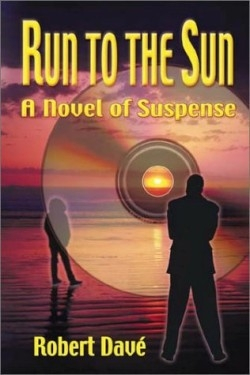Run to the Sun
Is it possible for the sum of a novel’s parts to be less than the whole? In other words, can the novel as a whole be pretty good, but have individual scenes and situations, which either don’t work or make no sense? Can those scenes detract from the complete success of the novel? but the novel succeeds fairly well anyway? Run to the Sun seems to do-and be-just that.
Hawaiian psychologist Michael Santorini is caught in a raging custody battle for his two children. When his court case seems to be turning in his direction, his estranged wife Mona flees with the two children to San Francisco. Enraged, Michael follows. Little does Michael know that he is being stalked by a psychotic killer who, among other things, believes she is a Guarani god. Upon arrival in San Francisco Michael confronts his ex-wife, only to have the killer attempt to kill him-and murder Mona instead. Suddenly Michael finds himself on the run from the police and someone who is attempting to kill him for no apparent reason.
This is an exceptional set-up, handled deftly by Davé. The scenes in the courtroom aren’t just good, they’re brilliant, the kind of writing that keeps readers flipping pages awaiting the next dramatic legal argument. Had he kept the entire novel in the courtroom, he could compete with such practitioners of the “courtroom drama” as Grisham and Turow. However, once Michael is on the run, the novel becomes problematic. The main character’s escapes and assistance bend believability like a pretzel: he runs into a former patient in the San Francisco bus station who’s willing to help; his secretary’s husband conveniently is retired military intelligence; his girlfriend unquestioningly puts herself in harm’s way for him. The complete arc of the novel, however-the “conspiracy” that Michael is running from-is fascinating. It involves Paraguayan history, Nazi experiments, the Lewis and Clark expedition, hidden gold, human guinea pigs in scientific research, dream analysis, cutting-edge work in computer-assisted brain wave theory, and Guarani religious mythology. It’s all unfolded in a methodical, intriguing fashion with deft, occasionally excellent writing and a heart-pounding narrative drive. A terrific suspense novel, but a flawed one.
Reviewed by
Mark Terry
Disclosure: This article is not an endorsement, but a review. The publisher of this book provided free copies of the book to have their book reviewed by a professional reviewer. No fee was paid by the publisher for this review. Foreword Reviews only recommends books that we love. Foreword Magazine, Inc. is disclosing this in accordance with the Federal Trade Commission’s 16 CFR, Part 255.

